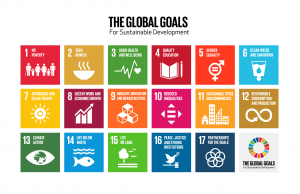Globalization persists, but is slowing and shifting into geopolitics-driven regional blocs. In this minor, you examine what this changing landscape means for businesses. You will assess international opportunities and risks, and learn how to develop strategies that help firms respond effectively.
You will work as an aspiring consultant: advising companies on international strategy, market selection, and entry decisions. This minor prepares you for roles such as entrepreneur, business developer, or (junior) consultant. Throughout the program, you will develop skills in innovation management, consultancy, entrepreneurship, and sustainability.
Admission
To join this program, all you need is an interest in business and management, a curious attitude, and a willingness to engage with diverse cultures while collaborating in learning teams. The Globalizing Business minor program welcomes both business and non-business students. You cannot participate in this minor program as a part-time student or as a flex student.
The Examination Board determines which minors do not have a higher professional education level and/or have an unacceptable overlap with the compulsory curriculum of your own study programme. Check at the page Not allowed minor courses under your institute which minors are not allowed.
Content
The Globalizing Business minor teaches you how companies work across borders and how they can grow internationally in a responsible and future-proof way, even if you have no business background. You learn, step by step, how to spot international opportunities and risks, choose a country or market, and build a practical plan for going abroad (including basics like strategy, marketing, and a simple financial plan). You also train hands-on consultancy skills such as interviewing a company, dealing with challenging situations, and creating a clear proposal for advice. Along the way, you explore how organizations handle change and innovate in a fast-changing world, using practical activities and reflection. You examine how companies affect people and the environment, and you practice using real examples to suggest realistic ways businesses can operate more responsibly by reducing harm, creating social value, and using resources in a more circular way. The minor culminates in a real-life team project where you act as consultants for a business client, deliver recommendations (often as a presentation), take part in a business simulation game, and write a short case study about what you learned.
The minor finishes with an International Week with visiting students and guest lecturers from India and Indonesia. You will play an International Business Simulation game with these visitors.
Learning objectives
This minor addresses a large variety of learning objectives, at levels 2 and 3:
- Consultancy skills level 2
- International Business knowledge level 3
- Project Management skills level 2
- Change and Innovation Management Skills level 2
- Communication Skills level 3
- Sustainable business management knowledge level 3
- Professional attitude level 2
Courses
The programme consists of the following courses:
| Title | ECTS |
| Consultancy | 5 |
| Managing Change and Innovation | 5 |
| Topics in International Business | 5 |
| Business in Society | 5 |
| Global Management Project | 10 |
Assessment
You will be assessed through:
- Professional portfolio
- Criterium Based Interviews
- Presentations (traditional, pitch style, poster and role play)
- Collaboration with the professional field for the project.
Literature
- Mintzberg, H. (2013). Simply Managing What Managers Do – and Can Do Better. Berrett-Koehler Publishers, Inc.
- Daft, R., Murphy J. &, Willmott, H. (2020). Organization Theory & Design: An International Perspective, 4th Edition. Cengage
- Raworth, K. (2017). Doughnut Economics: Seven Ways to Think Like a 21st-Century Economist. Random House UK.
- Ghemawat, P. (2007). Redefining Global Strategy: Crossing Borders in a World where Differences Still Matter. Harvard Business Press.
- Hamidizadeh, M. R., & Zargaranyazd, M. (2014). Analyzing International Readiness of Small and Medium-sized Enterprises. Central European Business Review, 3(4), 43.
- Meyer, K., & Peng, M. W. (2016). International business. Cengage Learning.
- Nidumolu, R., Prahalad, C. K., & Rangaswami, M. R. (2009). Why Sustainability Is Now the Key Driver of Innovation. (cover Story). Harvard Business Review, 87(9), 56–64.
- Osterwalder, A., Pigneur, Y., & Clark, T. (2010). Business model generation: a handbook for visionaries, game changers, and challengers. Hoboken, NJ: Wiley.
- Stroh, L.K. & Johnson H. H. (2006): The Basic Principles of Effective Consulting. Lawrence Erlbaum Publishers: London
- Lewicki, R. (2022). Essentials of Negotiation 5th (fifth) edition.
- Why are transferable skills so important? (n.d.). Michael Page. https://www.michaelpage.co.uk/advice/career-advice/making-your-next-career-move/transferable-skills
Schedule
The teaching days are Monday, Tuesday and Thursday (after 10.00 hrs). They could be subject to change.
With the exception of the first teaching period of the academic year (starting September), the lesson and test schedules are always posted on Mijn Rooster four weeks before the start of each teaching period. The schedule for the first teaching period of the academic year can be found on the site three weeks before the start. The most up-to-date schedule is always visible on Mijn Rooster.
At HU, full-time education may be scheduled between 08:30 and 19:00.
Additional costs
All reading material will be provided. No additional costs are required.

This minor course is marked by the Green Office as a sustainable minor. This means that by participating in this minor course, you can contribute to one or more of the Sustainable Development Goals from the UN.